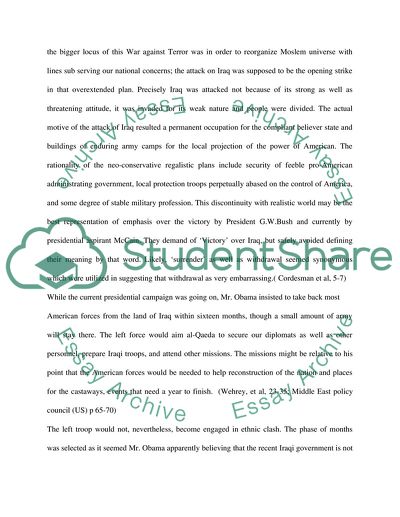Cite this document
(The Diplomatic Role of Residual US Forces in Iraq Research Paper - 1, n.d.)
The Diplomatic Role of Residual US Forces in Iraq Research Paper - 1. Retrieved from https://studentshare.org/social-science/1750424-introduction-to-political-science
The Diplomatic Role of Residual US Forces in Iraq Research Paper - 1. Retrieved from https://studentshare.org/social-science/1750424-introduction-to-political-science
(The Diplomatic Role of Residual US Forces in Iraq Research Paper - 1)
The Diplomatic Role of Residual US Forces in Iraq Research Paper - 1. https://studentshare.org/social-science/1750424-introduction-to-political-science.
The Diplomatic Role of Residual US Forces in Iraq Research Paper - 1. https://studentshare.org/social-science/1750424-introduction-to-political-science.
“The Diplomatic Role of Residual US Forces in Iraq Research Paper - 1”, n.d. https://studentshare.org/social-science/1750424-introduction-to-political-science.


